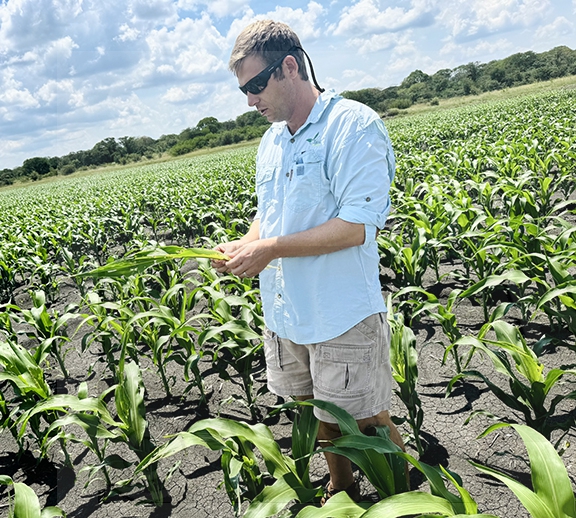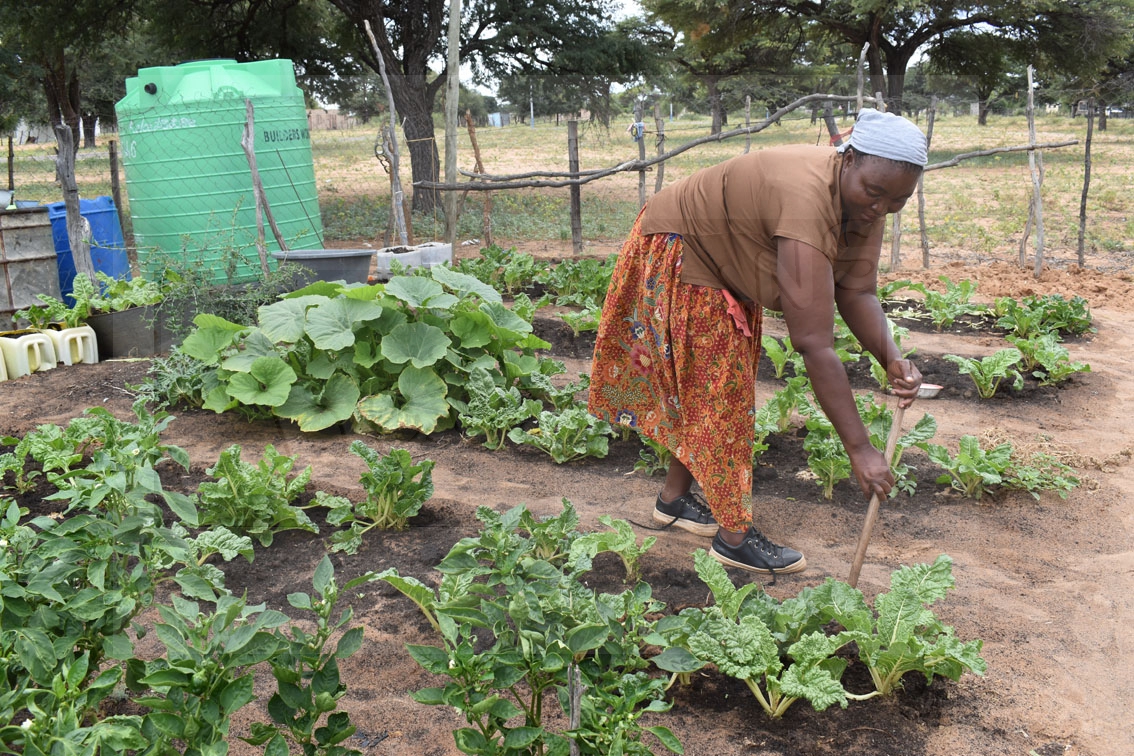Policy review aims for climate - smart agriculture
02 Oct 2025
Government is reviewing the 1991 National Policy on Agricultural Development (NPAD) to develop an efficient, climate-smart agriculture focused policy that drives food security and economic transformation, acting Minister of Land and Agriculture, Dr Edwin Dikoloti, has said.
Addressing stakeholders in Maun recently, Minister Dikoloti explained that the review’s primary purpose was to alleviate hunger and move the country toward food self-sufficiency. He lamented that the sector, which once significantly contributed to the Gross Domestic Product (GDP), had seen its contribution decline to two per cent.
The minister urged stakeholders to collaborate on strategies to revitalise the sector and appealed to Batswana to increase production and reduce reliance on imports.
“In North West district, you have resources such as water and fertile land, share how we can sustainably utilise the resources to boost the sector, feed the nation and export surplus,” he added. The district, he noted, also had significant opportunity for dairy farming due to its rich grazing land.
Dr Dikoloti however, acknowledged the region’s formidable challenges, which included livestock disease outbreaks, pests and the terrorising presence of elephants and predators.
He assured farmers that research and development would be the backbone of government’s efforts to address them. Despite the minister’s explanation, residents raised concerns about the challenges they faced, arguing that the sector’s decline was a direct result of lack of available land and outdated policies that did not benefit them.
They argued that availability of land, coupled with the implementation of sustainable land management practices and supportive policies, were key to ensuring future food security. They blamed the Tawana Land Board for the slow pace in allocating ploughing land. Residents argued that the Land Board’s sluggishness and unsound policies had demoralised many farmers who were passionate about agriculture.
“Traditionally we rely on both livestock rearing and arable farming for income and sustenance but currently, we are struggling to secure land to practice that. Our Land Board is dragging the feet to allocate land to us,” Kgosi Tapoloso Mosika said.He indicated that large and fertile portions of land such as the farms after Makalamabedi gate along the A3 road and land at the Sexaxa area, were currently idling, which if allocated, could spur greater production.
Kgosi Mosika also noted that lack of grazing land and the Land Board’s perceived disinterest in agriculture were major obstacles. He added that the unavailability of land prevented farmers from fully benefiting from existing agricultural schemes like ISPAAD, despite the prevalence of human-wildlife conflict in the region.
Mr Sesentle Madisa implored government to relook into the existing policies to identify failures and strengths, arguing that this would help to develop a new, modernised and comprehensive policy to address current challenges. Mr Madisa, whose farmers’ association had already trained over 70 farmers on sunflower production, also urged government to prioritise the maintenance of buffalo fences.
He proposed that the Department of Wildlife should take responsibility for the fences, rather than the Department of Agriculture, given that the damage was primarily caused by wildlife, particularly elephants. ENDS
Source : BOPA
Author : Esther Mmolai
Location : Maun
Event : Consultative meeting
Date : 02 Oct 2025






